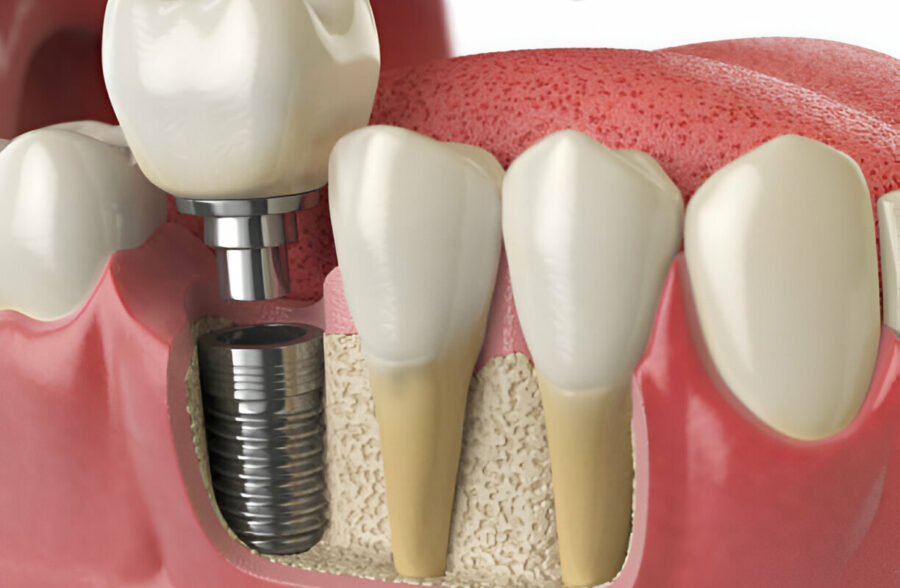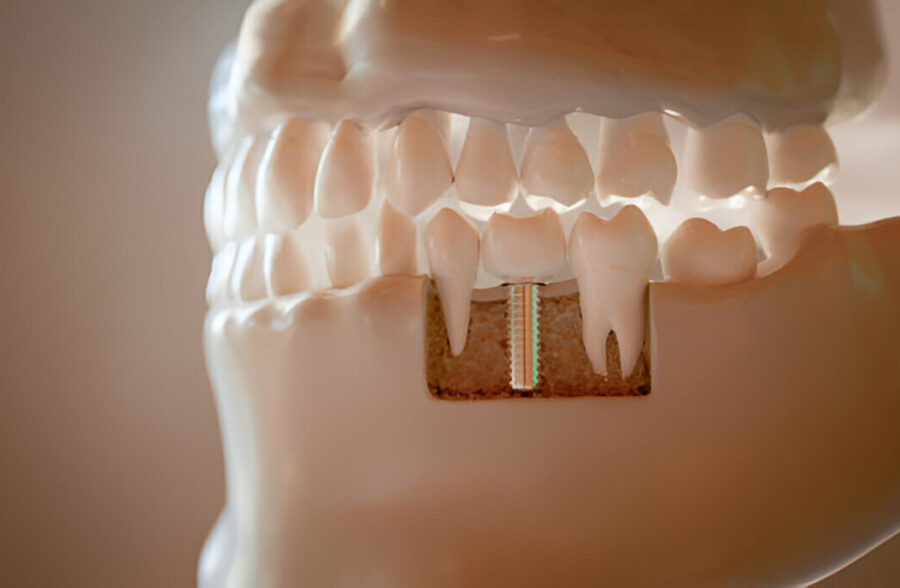Summary
Did you know?
Under ideal conditions, most dental implants can last for 20 years!
Dental implants are a popular and effective option for replacing lost or missing teeth, providing aesthetic and functional benefits. Most periodontists consider implants one of the ideal tooth replacement options for eligible patients.

However, proper maintenance is the key to ensuring these implants last a lifetime. Therefore, this guide takes a closer look at the best tips to care for your implants via topics like:
- Understanding Dental Implants – What is it About?
- The Dental Implants Procedure – A Brief Overview
- Tips for Effective Maintenance of Dental Implants
- Follow-Up Care & Professional Assistance – When to Seek Them?
- Common Implant Problems You Should Know Of!
Continue reading as we learn more about dental implants in the following sections.
Understanding Dental Implants – What is it About?
Dental implants are prosthetic tooth roots constructed from biocompatible materials, usually titanium. They are surgically inserted into the jawbone and merge through a process known as osseointegration.
A dental implant has three essential components:
- Implant Post: A titanium screw that is surgically implanted into the jawbone. It serves as the root for the prosthetic tooth.
- Abutment: This connecting component sits on top of the implant post and secures the crown in place.
- Crown: The crown is the visible component of the implant that is meant to resemble a natural tooth.
Dental implants merge with the jawbone and give a solid and long-lasting framework for prosthetic teeth. However, they require meticulous care to avoid problems and preserve lifespan.
The Dental Implants Procedure – A Brief Overview
The dental implant procedure consists of various steps. It generally begins with your dentist assessing whether implants are suitable for you.
Once confirmed, they will analyze your oral health. If appropriate, the dental implant is surgically inserted into the jawbone. Over the next few months, the implant will undergo osseointegration, which is the process by which it joins with the bone. This integration is critical for the implant’s lifetime since it provides stability and reduces bone loss.
Following successful osseointegration, an abutment is implanted, and a custom-made crown is added to complete the implant. Proper care and maintenance, such as regular oral hygiene and expert check-ups, can considerably extend the life of dental implants.
Tips for Effective Maintenance of Dental Implants
A. Daily Oral Hygiene Routine for Your Implant:
1. Flossing and Brushing Techniques:
Use a soft-bristled toothbrush to clean your teeth at least twice a day. Use gentle circular brushing strokes around the implant region to get rid of food particles and plaque.
Floss daily to keep the area between your teeth and the implant clean. Use interdental brushes or a floss threader to guarantee complete cleaning of the hard-to-reach regions surrounding the implant.
2. Recommended Oral Care Products:
Use a soft-bristled toothbrush and non-abrasive fluoride toothpaste to ensure you don’t harm the implant or irritate the gums.
Consider using your dentist’s antimicrobial mouthwash to curb bacterial growth and preserve a healthy oral environment around the implant.

B. Dietary Recommendations:
1. Foods to Avoid:
Avoid eating sticky, complex, or highly chewy foods, which might strain the implant unnecessarily and potentially harm it.
Additionally, you should avoid sugary and acidic meals and beverages, which can promote plaque accumulation and raise the risk of gum disease, compromising implant stability.
2. Foods that Promote Oral Health:
A balanced diet of vegetables, fruits, lean meats, and low-fat dairy will improve general dental health and extend the implant’s life.
Increase your consumption of calcium and vitamin D-rich foods necessary for bone health and implant durability.
C. Habits and Lifestyle Adjustments:
1. Avoiding Smoking and Excessive Alcohol Consumption:
Quit smoking because it slows recovery, weakens the immune system, and raises the likelihood of implant failure.
Limit your alcohol intake since excessive consumption can cause dehydration, decreased saliva production, and an increased risk of gum disease.
2. Managing Stress and Its Impact on Oral Health:
Use stress management practices such as frequent exercise, yoga, mindfulness, and deep breathing to reduce stress.
Stress can lead to tooth grinding (bruxism), putting pressure on implants. If you grind your teeth while sleeping, a nightguard can help protect your natural teeth and implants.
Individuals who meticulously follow these maintenance suggestions can benefit the most from their dental implants, fostering a healthy smile for many years to come.
Follow-Up Care & Professional Assistance – When to Seek Them?
1. Regular Dental Check-ups:
Schedule frequent check-ups with your Branson Family Dental as part of your dental implant follow-up care plan. Typically, they should be performed every six months or as your dentist indicates.
During these visits, your dentist will inspect the implant, the surrounding gum tissue, and general dental health. X-rays may be obtained to check that the implant is properly secured and has no problems.
2. Professional Cleanings:
Dental implants must be maintained regularly with expert cleanings by a dental hygienist. These cleanings help eliminate plaque, tartar, and germs from hard-to-reach places along the implant and gum line.
The hygienist will clean and polish the implant with specialized equipment without damaging the surrounding tissues.

3. Prompt Reporting of Issues:
Call your dentist immediately if you have pain, swelling, or discomfort around the implant site or notice any changes.
Early identification and action are critical to avoiding any consequences. Your dentist will conduct a comprehensive assessment and prescribe suitable therapy while preserving the implant’s integrity.
Regular follow-up care and seeking expert assistance as required, can help ensure your dental implants’ long-term success and effectiveness. It is critical to collaborate with your dental team to address any questions, concerns, or difficulties that may occur during the life of your dental implants.
Common Implant Problems You Should Know Of!
Implants can provide a long-term solution for some people, while others develop difficulties or require further therapy. Even though implants and restorations are not natural teeth, your food and dental care regimen is critical to your health and the long-term effectiveness of the procedure.
Complications such as loosening of teeth or oral infection are often treated by having your dental practitioner remove and reimplant the affected tooth. It may be comforting to know that reimplantation promises significant success even if your implant surgery fails (90% successful).
You can reduce your chance of complications with dental implants by:
- Avoiding cigarettes and tobacco products
- Scheduling frequent appointments with your dental specialist
- Taking proper care of your dental restorations
- Cleaning between your teeth with flossing equipment once a day
- Following healthy nutrition and oral care measures
- Brushing for two minutes twice daily
- Avoiding grinding your teeth (consider wearing a mouthguard at night to help prevent the damage).
Takeaway
- Dental implants are a popular and effective option for replacing lost or missing teeth, providing aesthetic and functional benefits.
- Your dentist will conduct a comprehensive assessment and prescribe suitable therapy to address issues while preserving the implant’s integrity.
- Stress can lead to tooth grinding (bruxism), putting pressure on implants.
- Don’t let the confusion around implants keep you from treatment. Get the best results with our experts at Branson Dental Center today!

